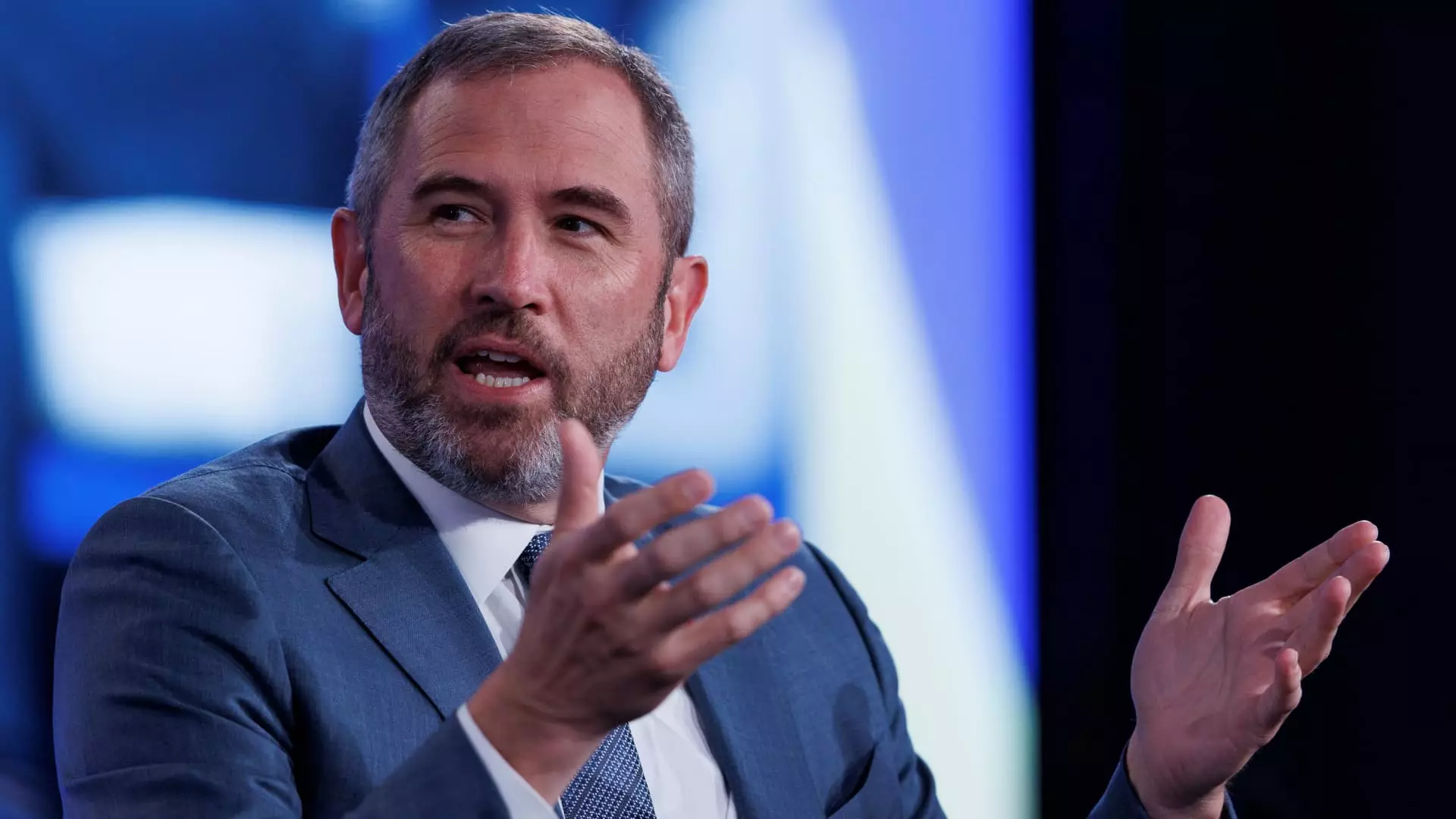The landscape of cryptocurrency regulation in the United States is under intense scrutiny, with figures like Ripple Labs’ CEO, Brad Garlinghouse, exemplifying the cautious optimism felt by many in the industry. As Ripple, a cornerstone player in the crypto realm, navigates through turbulent waters, Garlinghouse’s insights illuminate the evolving political and regulatory dynamics affecting the sector.
Garlinghouse has been vocal about his skepticism toward U.S. crypto regulations, reminding stakeholders of the uncertainty that has plagued the industry. However, his statements during a recent discussion at DC Fintech Week reveal a surprisingly optimistic perspective regarding the political climate following the forthcoming elections. “This is the most important election we’ve had,” he stated, indicating that regardless of the outcome, a newly elected Congress may adopt a more favorable stance towards innovation and cryptocurrency than seen before.
Ripple operates with approximately 95% of its business outside the U.S., a fact Garlinghouse attributes to the regulatory challenges that have grown prevalent in Washington. The company has faced legal hurdles, most notably a lawsuit filed by the U.S. Securities and Exchange Commission (SEC) in 2020, which questioned the status of XRP, Ripple’s native token. However, a recent ruling has cleared XRP from being classified as a security in retail sales, a development hailed as a pivotal victory not just for Ripple, but for the entire crypto industry.
In light of the current regulatory environment, Garlinghouse recommended that fintech startups consider incorporating their businesses outside the United States. This perspective is particularly pertinent given the rising complexities tied to U.S. regulations, which have made it increasingly difficult for domestic crypto firms to thrive. Nevertheless, amidst the challenges, Garlinghouse remains confident that the industry will ultimately prevail, asserting, “If in ten years we look back on how the U.S. got it wrong, it’s going to be seen as a mere speed bump.” His foresight motivates optimism, suggesting that despite current adversities, the foundations of innovation within the crypto space will ultimately endure and flourish.
Ripple’s strategic engagement with the political landscape also plays a pivotal role in fostering a pro-crypto environment. The firm has contributed at least $45 million to the Fairshake pro-crypto political action committee, signaling its commitment to influencing policy in favor of cryptocurrency. Furthermore, Garlinghouse’s personal endorsement of pro-crypto candidates, including an $11 million donation by co-founder Chris Larsen to Vice President Kamala Harris’ campaign, emphasizes Ripple’s proactive approach in navigating the political sphere.
Garlinghouse’s comments on the contrasts between the Trump and Harris campaigns reflect the crypto industry’s increasing polarization. While former President Trump has positioned himself as the “crypto president,” indicating an aggressive pro-crypto approach, the Harris campaign has maintained a more reserved, yet potentially constructive stance. Garlinghouse underscores that even though Harris’s rhetoric has been nuanced, her history as a representative from Silicon Valley aligns her with pro-technology sentiments.
The current administration’s posture towards cryptocurrency has left many industry participants feeling under siege. Garlinghouse articulated concerns about Biden’s execution of policies seen as hostile, citing “Operation Chokepoint 2.0,” a contemporary version of a past initiative that restricted banks from serving various sectors deemed risky yet legal. This, he argues, constitutes significant barriers for crypto enterprises seeking to collaborate with traditional finance.
Reflecting on the divided sentiment within the crypto community, Garlinghouse predicts a necessary “reset” that will catalyze progressive change within the regulatory framework. This potential reset may foster an environment enabling better dialogue between the industry and regulators, allowing for collaborative development of rules that protect consumers while encouraging innovation.
The endorsement of candidates who promote favorable crypto policies is crucial, especially as many in the industry strategize for the future. Encouraging pro-crypto representation in government is imperative for establishing a sustainable regulatory environment. As Garlinghouse calls for movement away from the Biden administration’s perceived failures concerning crypto, he emphasizes the need for advocacy efforts to ensure that the voices of those within the industry are heard and respected.
The journey forward is undeniably complex, but Garlinghouse’s reflections stand as a clarion call for the crypto community. As the U.S. navigates through potential regulatory overhauls, the proactive measures taken by industry leaders and their strategic partnerships with political entities will be vital in shaping an environment conducive to innovation and growth in cryptocurrency. The future may be uncertain, but the resolve to embrace it is becoming increasingly apparent.

